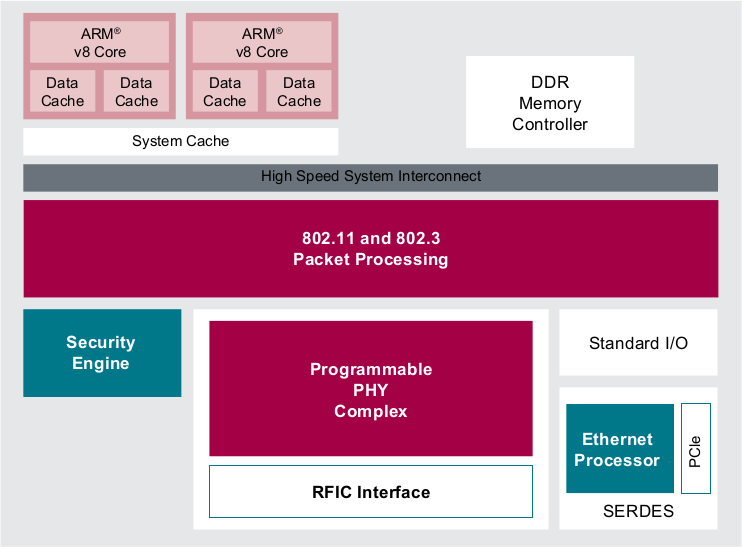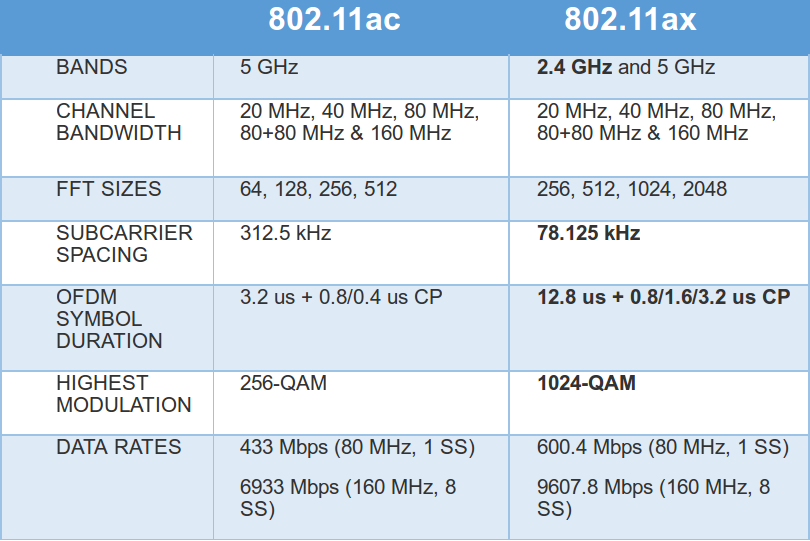Qualcomm has just announced the Qualcomm Mesh Networking Platform for OEM and broadband providers to design home WiFi routers/gateways capable of providing “robust and consistent connectivity”, and feature voice control capabilities, centralized management and security, and a range of mesh system features. In order to speed up adoption the the platform, the company introduced the Qualcomm Mesh Networking Reference Design with the following key features & benefits: Network System-on-Chip (NSoC) – Qualcomm IPQ40x8/9 network system-on-chip with four Cortex A7 cores, 802.11ac WiFi 2×2+2×2, network and crypto accelerators Qualcomm Wi-Fi Self-Organizing (SON) feature suite will ensure corner-to-corner Wi-Fi coverage, easy set-up, automatic management and traffic optimization, as well as additional security safeguards. Carrier-Grade features with Wi-Fi SON APIs, cloud-based diagnostics Integrated voice capabilities thanks to built-in microphone array and speaker, voice recognition software, and APIs support for popular cloud-based assistant applications. Variety of backhaul options to be used to maximize the […]
NXP QorIQ LayerScape LA1575 Programmable Wireless SoC to Support 5G, 802.11ax & 802.11ad WiFi, and Wireline
NXP has recently announced QorIQ LayerScape LA1575 programmable wireless platform with two ARMv8 cores, and simultaneous multi-standard support for 5G, Wi-Fi (802.11 ac and 802.11ax) and Wireline systems for enterprise and high-end home gateways. QorIQ LayerScape LA1575 key features and specifications: Multicore ARMv8 Processors for user applications DDR4 with ECC Programmable accelerator engines for signal processing. Programmable low latency MAC layer processing engines Programmable high performance packet processing engines to over 10 Gbps Configurable cryptographic offload engines Simultaneous multi-standard support for 5G, Wi-Fi (802.11 ac and 802.11ax) and Wireline systems Multiple Ethernet interfaces including 10Gbps PCIe gen 3.0 Integrated Trust architecture Single source clocking The main benefit of this SoC is that is is programmable, so even if some standards evolve after the release, it can be re-programmed to reflects the changes in specifications. Just to refresh everybody’s memory: 5G is the successor of 4G/LTE scheduled to start (Wave 1) around 2018, […]
802.11ax WiFi Aims to Deliver Higher Throughput (Up to 10 Gbps), Better Handle High Density Scenarios
802.11ax WiFi, also known as High-Efficiency Wireless (HEW), aims to improve the average throughput per user by a factor of at least 4 times in dense user environments, with a total bandwidth of 10 Gbps over 2.4 and 5.0 GHz . The new standard is still work in progress and is expected to be published in 2019. 802.11ax WiFi key features include: Backwards compatible with 802.11a/b/g/n/ac Increase 4x the average throughput per user in high-density scenarios, such as train stations, airports and stadiums. Data rates and channel widths similar to 802.11ac, with the exception of new Modulation and Coding Sets (MCS 10 and 11) with 1024-QAM. Specified for downlink and uplink multi-user operation by means of MU-MIMO and Orthogonal Frequency Division Multiple Access (OFDMA) technology. Larger OFDM FFT sizes (4x larger), narrower subcarrier spacing (4x closer), and longer symbol time (4x) for improved robustness and performance in multipath fading environments […]





